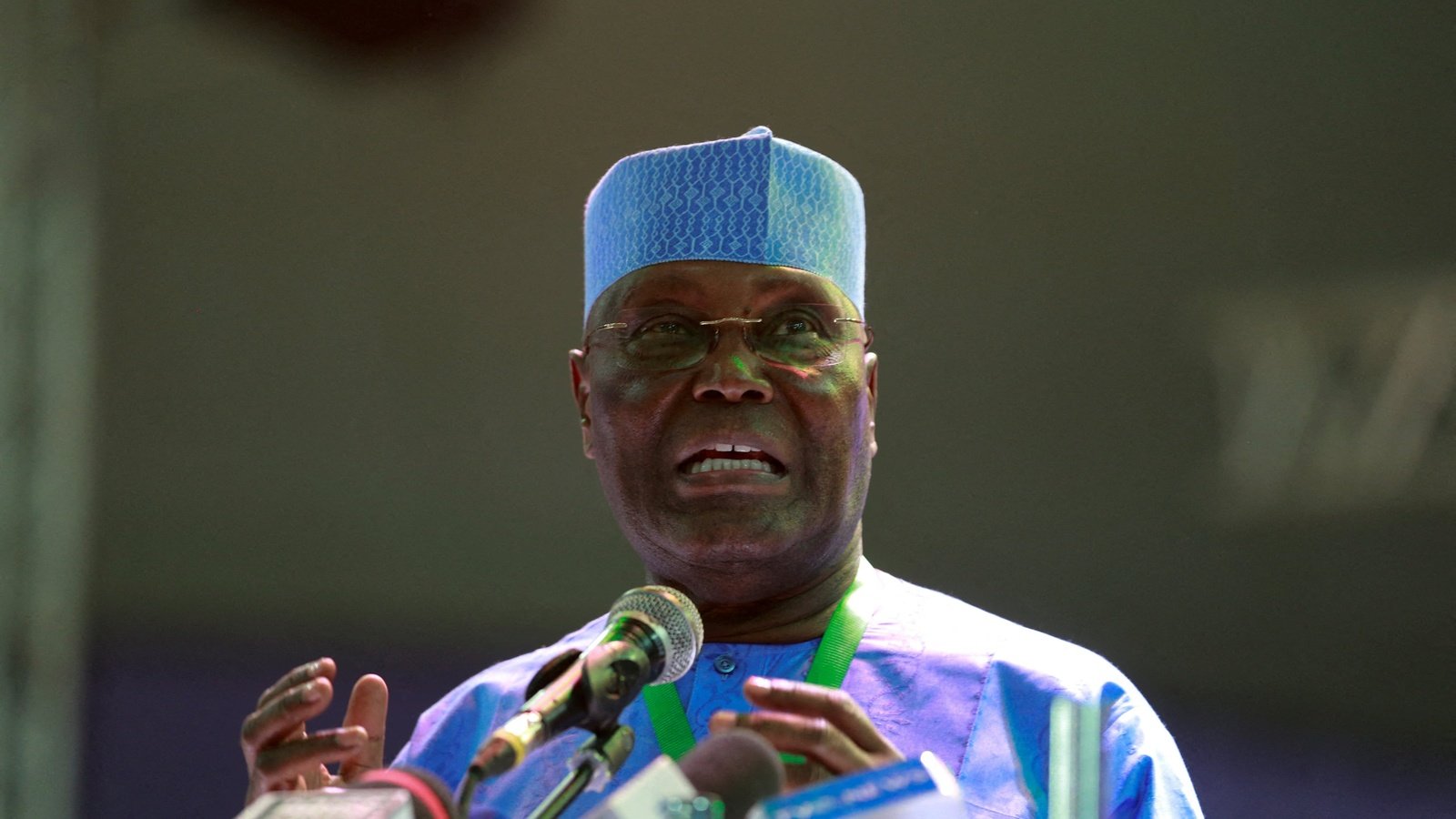How I will stimulate economic growth – Atiku
The Presidential candidate of the Peoples Democratic Party, PDP, Alhaji Atiku Abubakar, has said that his economic growth and development agenda is aimed primarily at stimulating the growth of the economy and positioning Nigeria among the top 20 economies of the world. Atiku who spoke yesterday in Lagos during the Nigeria Economic Summit Group Presidential […]

The Presidential candidate of the Peoples Democratic Party, PDP, Alhaji Atiku Abubakar, has said that his economic growth and development agenda is aimed primarily at stimulating the growth of the economy and positioning Nigeria among the top 20 economies of the world.
Atiku who spoke yesterday in Lagos during the Nigeria Economic Summit Group Presidential Dialogue on the Economy, said he will reduce infrastructure deficit in order to enhance the carrying capacity of the economy and unleash growth and wealth creation.
He noted that if elected next month, he will establish an “Infrastructure Development Unit” in the presidency, with a coordinating function and a specific mandate of working with the MDAs (Ministries Departments and Agencies) to fast track and drive the process of infrastructure development in the country.
“As a short-term measure to ensure enhanced power supply I shall, within the first year of the new administration, initiate and implement an emergency power programme (EPPs) that can deliver additional capacity in certain key areas,” he said.
He promised to incentivize private investors to invest in the entire electricity value chain while the FG focuses on policy, regulation, and standardization. He added that a tariff structure for operators, which reflects costs, will be one of such incentives.
NSCDC, hunters assault police officer in Bauchi
Blocking of roads by aggrieved tanker drivers raises concerns
Atiku said he will also propose legislation for the removal of the entire electricity value chain from the exclusive list and give states the power to generate, transmit and distribute electricity for themselves.
While promising far-reaching fiscal restructuring to improve liquidity as well as the management of fiscal resources, Atiku said his administration will create an Economic Stimulus Fund with an initial investment capacity of approximately $10 billion to prioritize support to MSMEs across all the economic sectors.
“We shall attract investments in the oil and gas sector, enhance revenues, including through reduction of oil theft. We shall also take steps to increase non-oil revenues.
“In that regard, we will undertake an immediate review of government spending with a view to eliminating all leakages arising from subsidy payments, especially subsidy on petroleum products. We will also stop all fiscal support to ailing State-owned enterprises. We will improve spending efficiency by gradually reducing government recurrent expenditures. Over the medium term, recurrent expenditures should not exceed 45% of the budget,” he said.
Atiku also took jibe at Tinubu who made a presentation at the NESG summit on Friday, noting that it was patently misleading to compare Nigeria’s borrowing binge with that of developed countries such as Japan and the United States as presented by the APC presidential candidate.
“Those countries export huge amounts of high value manufactured goods while Nigeria exports very little, mostly raw materials. And theirs are safe-haven currencies. It also shows an absolute ignorance of development economics to state, as he did, that budgeting under him would be based on projected spending levels needed to achieve growth rate above 10%.
Atiku also claimed that the Muhammadu Buhari-led administration created nine million unemployed youths between 2015 and 2020. The former Vice President noted that the number of fully employed people also dropped by 54%, from 68 million to 31 million people within the same period.
“Under the current administration our people are not working. More than 23 million people are out of jobs. In just 5 years between 2015 and 2020, the number of fully employed people dropped by 54%, from 68 million to 31 million people. This is frightening in a country of 200 million people.
Recall that Tinubu on Friday said his administration would immediately after getting to office, address monetary and trade reforms to effectively increase domestic production, thus serving to curb imported inflation, and to ensure better macro-economic stability by accelerating inclusive growth and job creation across Nigeria.
